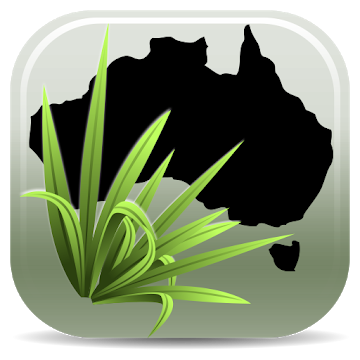|
As for many of our readers, the past year has presented challenges to the Lucid team associated with the Covid pandemic. We hope that you and your families will have a better experience in 2021. Despite these Covid restrictions, the Lucid team has been busy for the past months developing a number of exciting projects, alongside our usual activities.
Lucid Phoenix
 Lucid 4 will soon support building dichotomous keys. This update will replace Lucid Phoenix, our current dichotomous key Builder and Player. The best of Lucid Phoenix has been merged into Lucid v4 allowing key authors to manage all their key building needs within the one platform. The update will also support the deployment of Phoenix keys with an independent "play anywhere" player, similar to the current Lucid key player. The popular feature of importing and analysing existing text based dichotomous keys will also be included. Lucid 4 will soon support building dichotomous keys. This update will replace Lucid Phoenix, our current dichotomous key Builder and Player. The best of Lucid Phoenix has been merged into Lucid v4 allowing key authors to manage all their key building needs within the one platform. The update will also support the deployment of Phoenix keys with an independent "play anywhere" player, similar to the current Lucid key player. The popular feature of importing and analysing existing text based dichotomous keys will also be included.
This update will be free to existing Lucid v4 licence holders. Current Lucid Phoenix licence holders will be able to upgrade to Lucid v4 with a 20% discount offer. Further news will be provided when this upgrade becomes available.
Lucid AI
As mentioned in our last Newsletter, the team has been developing tools and infrastructure needed to support Artificial Intelligence (image recognition) on the Lucid platform. AI will add a powerful new tool to the Lucid identification toolbox. While simple image classification* can show impressive results, we see unique opportunities to combine AI technologies with Lucid keys to improve the speed and quality of identification.
*For those not familiar with AI, image classification in simple terms is the ability to submit an image to an AI model (trained on a subject e.g. different species of fish using hundreds or thousands of images) and have the image 'classified' by the model as one of the subjects the AI trained for (e.g. Salmon or Cod). Another, more advanced, approach of AI is object detection within a submitted image. This also requires many images, in addition to labelling of the image features.
Weed identification and AI
 The first project planned to use AI image recognition will be our Environmental Weeds of Australia key. We quickly found our existing weed image library far from adequate, so for the past 5 months the team has been out taking thousands of images of weeds specifically for AI training. So far, for good results we've found we needed images of multiple plants (of the same species), across different growth stages and environmental conditions. Often taking 150-300 photos of each species. I know personally my camera's CCD has overheated on several occasions due to the number of images being taken - thank goodness for digital photography and large storage capacities! The first project planned to use AI image recognition will be our Environmental Weeds of Australia key. We quickly found our existing weed image library far from adequate, so for the past 5 months the team has been out taking thousands of images of weeds specifically for AI training. So far, for good results we've found we needed images of multiple plants (of the same species), across different growth stages and environmental conditions. Often taking 150-300 photos of each species. I know personally my camera's CCD has overheated on several occasions due to the number of images being taken - thank goodness for digital photography and large storage capacities!
It will be a while before our users get to work with the results of these efforts, but we will post further updates on this as the year progresses.
Online Lucid workshops
We recently held a workshop for the CSIRO Oceans and Atmosphere team who are building keys and fact sheets to phytoplankton and zooplankton using Lucid and Fact Sheet Fusion. While local participants in Brisbane were able to attend, some of the team based in Hobart, Tasmania could not because of Covid State restrictions. Therefore, this was the first workshop we have run where we combined live and online workshop sessions.
Based on this experience and given that international travel is unlikely to resume for months or possibly years, we are now planning to provide online workshops for international Lucid users. We will provide more information about these plans later, including options for funding but in the meantime if you or your organisation are interested in being involved in an online Lucid workshop, please let us know.
Key updates
Plants and Fungi of south-western New South Wales
An extensive update to the key and content has been released on Android and iOS.
Android
Apple iOS
Key to insect orders
This revised app, aimed for use by schools, universities, and the general public, has been upgraded for both the Android and iOS versions.
Android
Apple iOS
Coming Soon

On the Fly
This popular key to fly families of Australia is being updated as Android and iOS apps and should be available in the next month. |